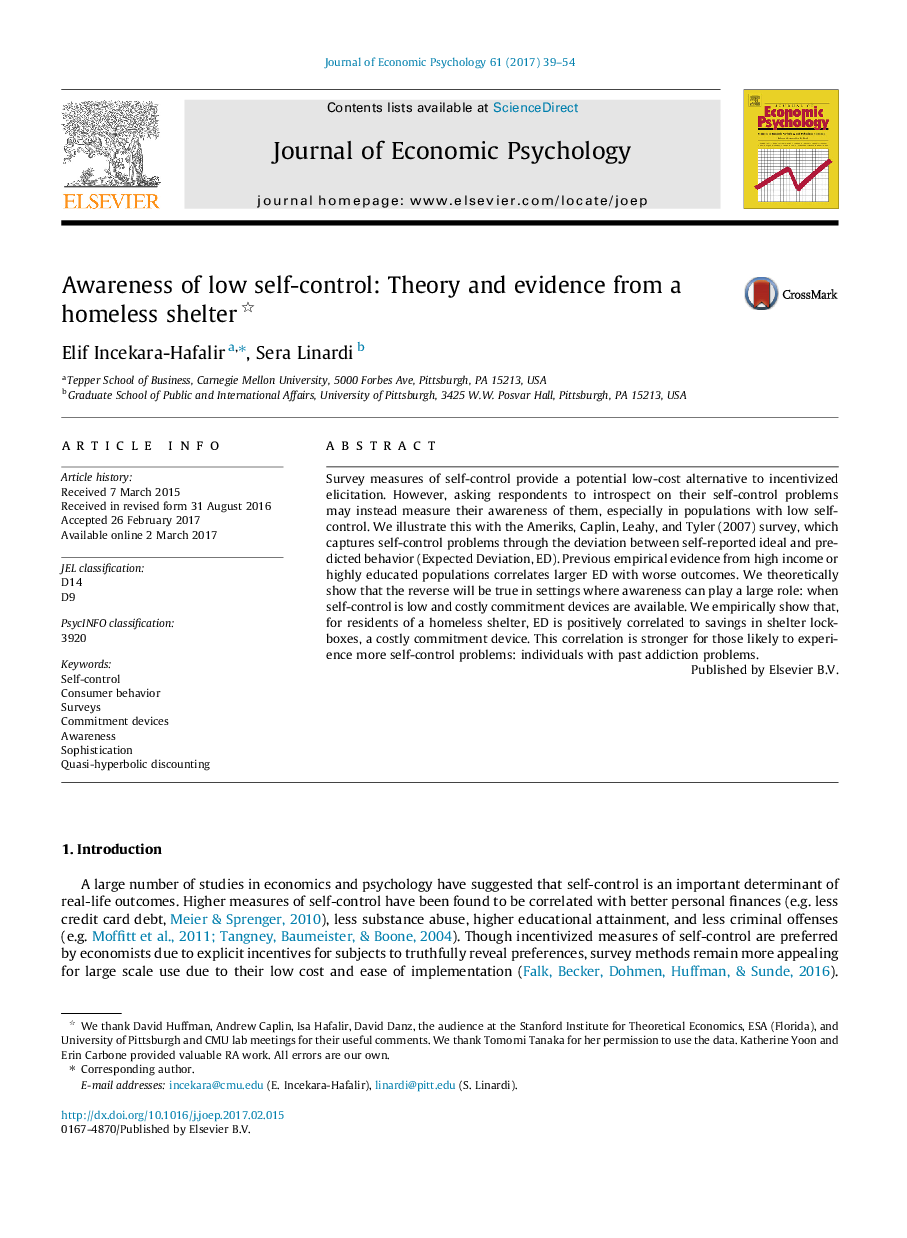| Article ID | Journal | Published Year | Pages | File Type |
|---|---|---|---|---|
| 5034762 | Journal of Economic Psychology | 2017 | 16 Pages |
â¢We investigate a survey measure of selfâcontrol, namely the Expected Deviation (ED).â¢Our theory relates ED, self-control, awareness of self-control, and commitment.â¢We measure ED and collect data on commitment savings in a homeless shelter.â¢We provide a complementing evidence to previous literature on the value of ED.â¢We show that ED correlates with outcomes in a theoretically-consistent manner.
Survey measures of self-control provide a potential low-cost alternative to incentivized elicitation. However, asking respondents to introspect on their self-control problems may instead measure their awareness of them, especially in populations with low self-control. We illustrate this with the Ameriks, Caplin, Leahy, and Tyler (2007) survey, which captures self-control problems through the deviation between self-reported ideal and predicted behavior (Expected Deviation, ED). Previous empirical evidence from high income or highly educated populations correlates larger ED with worse outcomes. We theoretically show that the reverse will be true in settings where awareness can play a large role: when self-control is low and costly commitment devices are available. We empirically show that, for residents of a homeless shelter, ED is positively correlated to savings in shelter lockboxes, a costly commitment device. This correlation is stronger for those likely to experience more self-control problems: individuals with past addiction problems.
